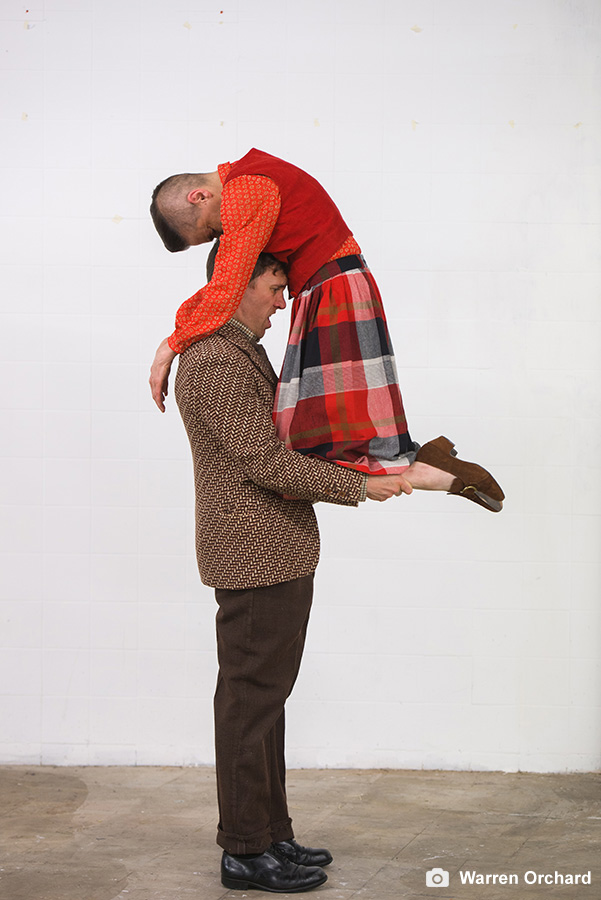
Credit Warren Orchard
Light, Ladd & Emberton’s production simply entitled ‘Caitlin’ was commissioned by the National Library of Wales as part of this year’s centenary celebration of Dylan Thomas’ birth. Directed by Deborah Lightand devised and performed by Eddie Ladd and Gwyn Emberton, the piece explores the life of the often overlooked wife of the famous poet through movement.
The audience is invited into the studio. There are chairs set up in a circle, representative of an AA meeting. Ladd sits with us and introduces herself as Caitlin, an alcoholic. She then launches into an energetic one hour performance which explores the trials and tribulations of Mrs Thomas.
The piece is punctuated by small chunks of dialogue; sentences such as “My husband was a very famous poet” are repeated over and over. Caitlin often lived in the shadow of her husband, and so this repetition serves well to emphasise this. Her husband’s success must have, at times, infuriated her. She tells us that she “was going to be a famous dancer”, but as the audience is aware, this never happened and only adds to the poignancy of her character.
Emberton stands on a chair, hand in pocket in that iconic Thomas pose, rotating and puffing out hot air as Caitlin watches from below. She tells us that she had three babies, although it felt like four as her husband was a ‘professional baby’. Ladd and Emberton cleverly use chairs to represent highchairs in order to communicate this message.
The movement ranges from loving, playful embraces to frantic, violent encounters, representative of the nature of the Thomas’ relationship. Ladd tells us of her affairs, of Dylan’s affairs and combines these pieces of dialogue with sensual movement.
Chairs are used most creatively to illustrate a number of different things, from a highchair to a straight-jacket, a pushchair to a bed. Music from Sion Orgon compliments the piece beautifully and works well to dictate the pace of the piece.
One of the most difficult things to do with a piece of movement theatre is to effectively communicate a narrative, but Ladd, Emberton and Light do this expertly. Some sections are perhaps slightly ambiguous, but this only helps to provoke the audience into questioning what it could potentially mean. A truly fantastic piece which gives a rare insight into the life of Caitlin Thomas.
Get The Chance has a firm but friendly comments policy.
